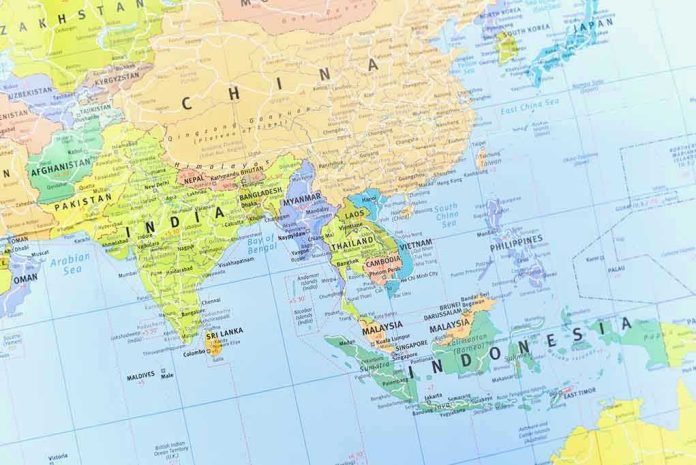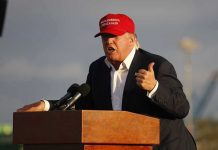
The Trump administration’s top aide has publicly accused India of directly funding Russia’s war machine through massive oil purchases, marking a sharp escalation in diplomatic tensions between Washington and New Delhi.
Story Highlights
- Stephen Miller accuses India of “financing” Russia’s Ukraine war through oil purchases during Fox News interview
- U.S. imposes 25% tariffs on Indian imports as punishment for continued Russian energy trade
- India’s Russian oil imports surged from 0.2% to levels “basically tied with China” since Ukraine invasion began
- Indian officials signal no immediate policy changes despite mounting U.S. pressure and economic penalties
Trump Aide Delivers Unprecedented Public Rebuke
White House Deputy Chief of Staff Stephen Miller launched an unusually direct attack on India during an August 3rd Fox News appearance, declaring “It is not acceptable for India to continue financing this war by purchasing the oil from Russia.” Miller’s comments represent the strongest public criticism from a senior Trump administration official toward a nation traditionally viewed as a key Indo-Pacific strategic partner.
🚨 BIG! Trump's close aide Stephen Miller accuses India of FUNDING Russia’s war in Ukraine by buying oil.
Says: “This is not ACCEPTABLE…”
— The louder the FRUSTRATION, the CLEARER it is: India is not PLAYING by their rules 🔥
— Megh Updates 🚨™ (@MeghUpdates) August 3, 2025
The timing of Miller’s remarks coincided with the implementation of new 25% U.S. tariffs on Indian imports, imposed August 1st as direct retaliation for India’s refusal to curtail Russian energy purchases. This economic pressure campaign signals the Trump administration’s willingness to prioritize Ukraine war objectives over traditional alliance relationships.
India’s Energy Independence Stance Remains Firm
Indian government officials responded to the U.S. pressure by reaffirming their commitment to energy security priorities. Reuters reported that Indian officials signaled no immediate changes to their Russian oil import policies, despite the new tariffs and diplomatic condemnation. This defiant stance reflects India’s long-standing principle of strategic autonomy in foreign policy decisions.
The scale of India’s Russian oil relationship has grown dramatically since February 2022. Miller noted that India’s purchases are now “basically tied with China,” representing a massive shift from the pre-war level of just 0.2% of India’s total oil imports. This transformation has made India one of Russia’s most critical energy customers at a time when Western sanctions aimed to isolate Moscow’s economy.
Economic Warfare Escalates Trade Tensions
The 25% tariff imposition represents more than typical trade policy disagreements. The Trump administration explicitly linked these economic penalties to India’s foreign policy choices, establishing a concerning precedent for weaponizing trade relationships. Indian exporters now face significant barriers accessing American markets, while U.S. consumers will likely bear higher costs for Indian goods.
This economic pressure campaign raises serious questions about the sustainability of U.S.-India strategic cooperation. The partnership has been crucial for American efforts to counter Chinese influence in the Indo-Pacific region, yet the Trump administration appears willing to sacrifice this relationship over Ukraine-related objectives that may not directly serve core American interests in Asia.
Strategic Implications for Conservative Priorities
The administration’s approach toward India reveals troubling priorities that may undermine long-term American strategic interests. While supporting Ukraine against Russian aggression aligns with conservative principles of opposing authoritarian expansion, alienating India—a democratic partner capable of balancing Chinese power—seems counterproductive to America First objectives.
India’s position reflects practical energy security needs rather than pro-Russian sentiment. The country requires affordable energy to fuel economic growth and lift its population out of poverty. Forcing India to choose between energy security and American approval may ultimately push New Delhi closer to Beijing and Moscow, exactly the opposite outcome conservative foreign policy should seek to achieve.
Sources:
Kyiv Independent – Trump aide accuses India of financing Russia’s war in Ukraine
News18 – India basically tied with China in purchasing Russian oil, says top Trump aide
Mezha – Stephen Miller accuses India of funding Russia’s war through oil imports






